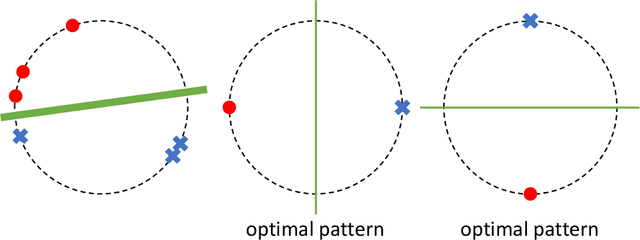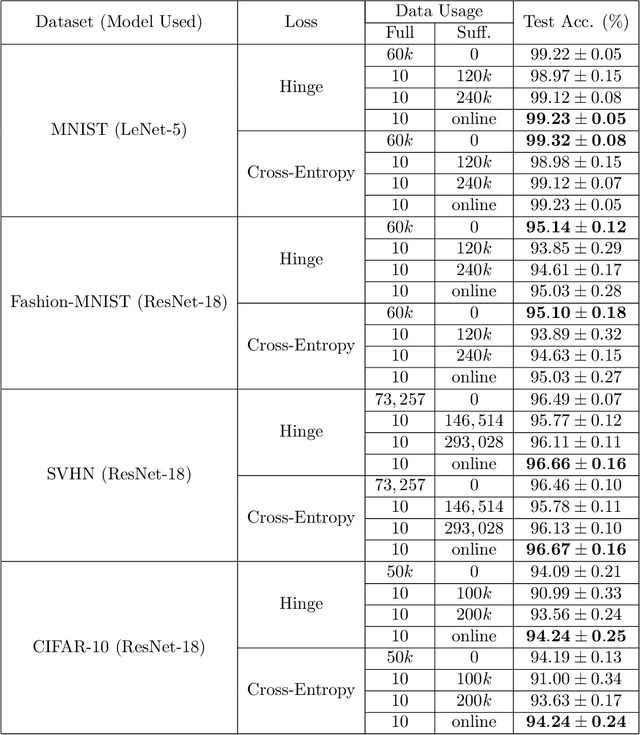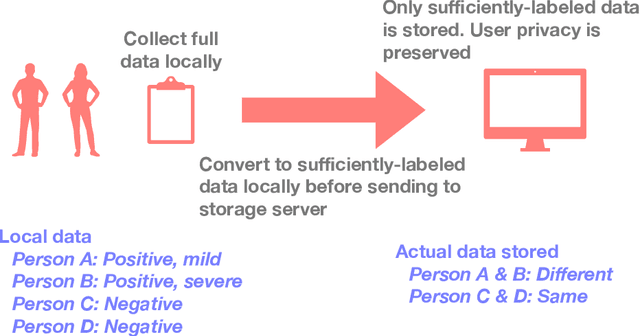Labels, Information, and Computation: Efficient, Privacy-Preserving Learning Using Sufficient Labels
Paper and Code
Apr 19, 2021


In supervised learning, obtaining a large set of fully-labeled training data is expensive. We show that we do not always need full label information on every single training example to train a competent classifier. Specifically, inspired by the principle of sufficiency in statistics, we present a statistic (a summary) of the fully-labeled training set that captures almost all the relevant information for classification but at the same time is easier to obtain directly. We call this statistic "sufficiently-labeled data" and prove its sufficiency and efficiency for finding the optimal hidden representations, on which competent classifier heads can be trained using as few as a single randomly-chosen fully-labeled example per class. Sufficiently-labeled data can be obtained from annotators directly without collecting the fully-labeled data first. And we prove that it is easier to directly obtain sufficiently-labeled data than obtaining fully-labeled data. Furthermore, sufficiently-labeled data naturally preserves user privacy by storing relative, instead of absolute, information. Extensive experimental results are provided to support our theory.
 Add to Chrome
Add to Chrome Add to Firefox
Add to Firefox Add to Edge
Add to Edge